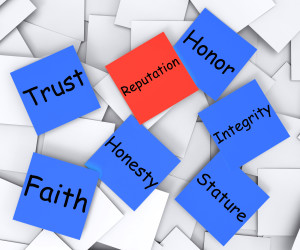 I was asked recently about the importance of credibility. It brought to mind a piece I published two years ago, in December, 2014. As we wind down the year and contemplate our personal goals for 2017, I decided it was a good to time to reprint that column.
I was asked recently about the importance of credibility. It brought to mind a piece I published two years ago, in December, 2014. As we wind down the year and contemplate our personal goals for 2017, I decided it was a good to time to reprint that column.
This is a magical time of year for many. For others, it is a time of greater despair because of what they don’t have. Please take time to share, to reach out. Help brighten someone’s holiday season. You will be glad you did.
On a personal note, in April I was offered a wonderful opportunity with Vision Financial Services as their Chief Performance Officer/COO. This opportunity allows me to continue my desire to impact how individuals and organizations become higher versions of themselves.
While I will be in one organization, I will continue to write about areas that I hope challenge your thinking and inspire a change in behavior to help you get more of what you want.
The last 10 years with Leadership Vision has been an incredible period of growth. Thank you for being part of it. I hope we can continue to share ideas about leadership and personal growth.
For now, may the magic, wonder, and love of this season be with you.
Be well.
Jim
Credibility: A Critical Foundation of Leadership
“If you don’t believe in the messenger, you won’t believe the message.” —Jim Kouzes, co-author of Credibility: How Leaders Gain and Lose It, Why People Demand It
I like the subject of “credibility” because it incorporates several critical (foundational) pieces necessary to establishing relationships and to being a good leader. At the center are these elements of who you are:
- your personality (how you tend to behave); are you more task oriented, or more people oriented; more assertive or less assertive
- your beliefs, values, assumptions, and attitudes (that drive the choices around what you are motivated to do)
- are you a person of high character (doing the right thing for the right reason, even when people aren’t looking); do you do what you say you’re going to do when you say you’re going to do it?
This is the three-dimensional matrix of who you are and how others experience you. This ‘matrix’ works in combination to help determine if you are trustworthy and operating with integrity.
I remember asking one of my clients, “What percentage of the time, when you make a commitment to do something for someone, do you do it?” He thought for a moment and responded that he followed through on average 85 – 90% of the time. I asked him to track his ‘commitment success’ for a week, including those commitments made at home. That meant that every time someone stopped him in the hall, or ‘dropped by’ his office and he agreed to review something, or talk to someone, or produce something, or do something with or for his spouse or children he was to track what he said he would do and what he actually did.
Three days into the tracking he called me dumbfounded and embarrassed. He indicated that his ‘commitment’ percentage was less than 50% at work and closer to 45% at home. Ouch! The power of that awareness activity was a ‘wake up’ call for how he saw himself and how others were experiencing him. It was the genesis for some difficult development work. I told him, “Welcome to the world of people with good intentions. You have a lot of company.”
Alongside of this personal foundation is what you know and can demonstrate (your expertise). In the early part of your career your ‘expertise’ is often what gets you recognized because it is about you meeting or exceeding expectations for getting the job done. Your ‘expertise’ remains important, but tends to lessen as you move up the leadership latter.
When there is alignment between who you are, what you know and do, and how you do it, this is a solid foundation in establishing trust and belief in you as a leader. When people trust and believe in you as a leader, they’ll follow you without much question. If there are inconsistencies in any of the three (who you are, what you know and do, or how you do it) you will not have full credibility. Without that, you face an uphill battle as a leader, because you will be constantly expending energy trying to ‘sell’ the portion of your credibility that isn’t fully evident or trusted by others. And whether you’re the one pulling or the one being pulled, pretty soon you’re both weary and ready to give up.
What is your credibility? How well do you know yourself (your behavioral tendencies, what your values, attitudes and beliefs are and how they drive you, your character (including your integrity), and how trustworthy are you?
This is a good place to stop and let you think about these questions and how important they are to your relationships and to your effectiveness as a leader. I’d also encourage you to think about your ‘commitment success,’ and the degree you live in the world of good intentions.
Next month we’ll explore some of the better ways of finding out about your credibility.
To your best… Jim
Of Interest:
Since the column was written in December, 2014, I went back to the Fast Company from the same time, for this: https://www.fastcompany.com/3038214/secrets-of-the-most-productive-people Secrets of the Most Productive People. It’s a good time of year to take stalk of ways we can be more productive.
